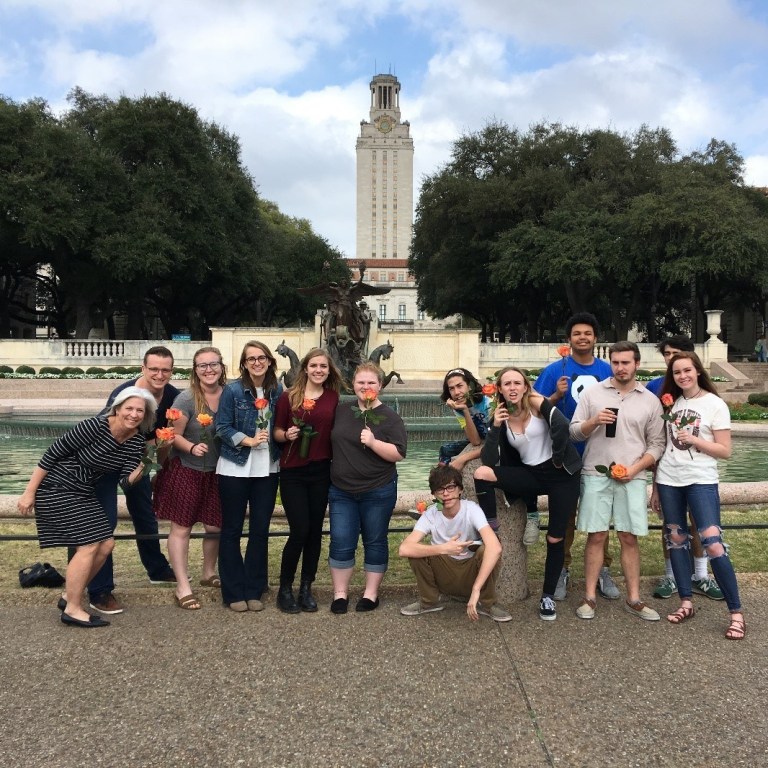Ideas in Action: Improving Educational Outcomes for Students in Recovery
Tuesday, October 16, 2018 | Safal Partners
Key Takeaway: University High School is helping teens coping with addiction and other trauma achieve their potential in a safe and supportive environment.
Location: Austin, TX
Founded: 2012
Enrollment: 23 students
Grades Served: 9-12
“It’s a safe place—what most people describe when they come through our doors is a sense of comfort.”
For teens struggling with the grips of addiction, University High School (UHS) in Austin is helping them take back the reins of their lives and futures.
“They can be really fragile,” says Julie McElrath, the executive director of UHS. “Some of [the students] can be coming to us with a negative experience from their school. Some of them have been arrested at school, some of them may have been truant from school. What may happen is our students have experienced trauma as a result of their drug use.”
UHS is a sober high school that serves students in grades 9 through 12 in recovery from substance abuse disorder. UHS is a part of The University of Texas-University Charter School (UT-UCS) system, which emphasizes providing personalized learning experiences for students who need alternative educational programs. The UT-UCS system, which has been in operation for 21 years, specializes in serving special needs students in unique settings, such as psychiatric hospitals and residential treatment services. It serves more than 3,000 students in 23 locations across central Texas and the Houston area.

Photo Credit: University High School
“When it comes to learning, it’s going to be different because our model is different than that of a traditional high school,” says McElrath. “As a result of the adolescent developing prefrontal cortex, and neurologically, our students adjusting to managing emotions without a substance, much of our work is focused around their social/emotional wellness and recovery.”
UHS’s personalized learning approach is carried out by two teams—an academic team and a leadership and recovery team. Together, they provide high-quality accredited academics as well as a recovery program that integrates therapeutic and peer-to-peer support systems. The leadership and recovery team includes members who specialize in recovery and chemical dependence as well as counselors and social workers.
Every morning at UHS begins with a peer-based morning meeting, which includes a facilitated discussion and the opportunity for students to clear their minds before heading to the school’s academic center. Here, students can request further assistance for a matter they may be facing.
“A student could say, ‘Hey, Julie, can I get a pullout with you later?’ They’re identifying for themselves something that didn’t come up during the check-in, something they need to process a little further,” says McElrath.
Students are in direct instruction for English in the morning and in direct instruction for math and science in the afternoon. The students who are not in direct instruction work in UHS’s Learning Lab with online curriculum courses. Students are permitted to take breaks when necessary, in addition to their normal afternoon break. During instruction, students are permitted to play with stress balls and bring their own music player. On Fridays, UHS instructors and staff focus on individualized attention for students, with some planned outdoor physical activity, like yoga, and a fun off-campus lunch.
“We end the week on a high note,” says McElrath.
Both of UHS’s academic teachers are special education certified. In addition, both the recovery support team and the academic teams at UHS are trained. The TBRI model, developed by Dr. Karyn Purvis and Dr. David Cross the Texas Christian University Institute of Child Development, offers practical tools for educators who work with children who have suffered abuse, neglect, or other trauma. This model helps children develop:
- a feeling of safety,
- healing relationships, and
- self-management and coping skills.
The model centers around building trust between students and the adults in their lives.
“They’re having to rebuild trust with their parents, their friends, and themselves,” said McElrath. “What we find from our students and their caregivers is that they’ve been through a real crisis situation. For some families, they’ve been dealing with this a number of years.”
UHS works hard to keep their students on track, not only emotionally and physically, but also academically. The school offers dual credit courses, encompassing both online and in-person instruction and support. This past year, they graduated 13 students, with nine heading to higher education.
UHS is a designated “Recovery High School” and a member of the national Association of Recovery Schools (ARS), which defines recovery high schools as “designed specifically for students recovering from substance abuse or dependency.” McElrath says these types of high schools are rare in the U.S., mainly because running these types of schools can be expensive. Fees for the recovery portion of the school are around $1,800 per student and UHS raises the rest of the school’s operating costs. McElrath says they’ve never turned away a student due to a financial barrier and many of the students receive financial aid.
“We are constantly exploring ways to do it better,” says McElrath. “For as long as we can, we want to serve the community.”
